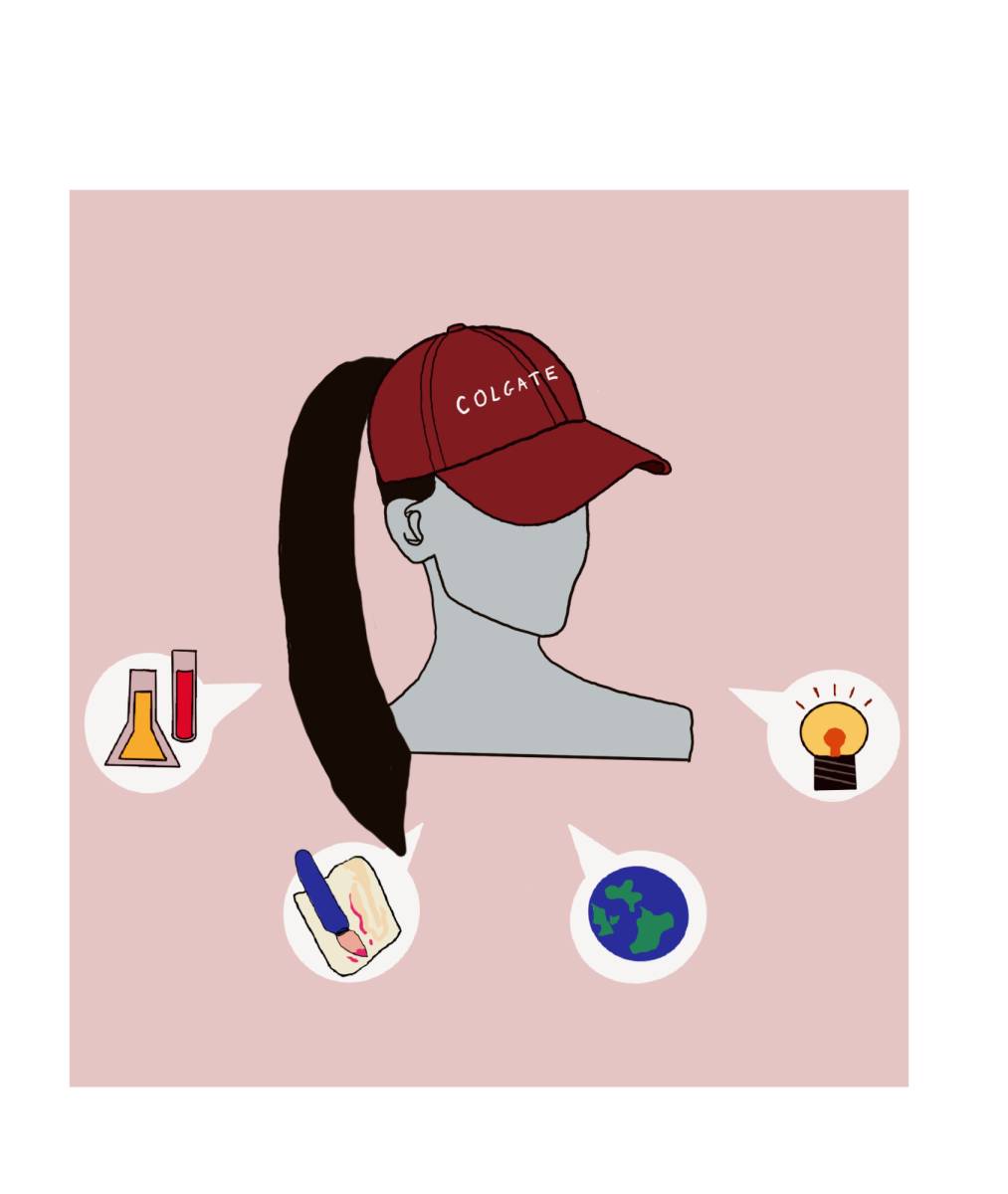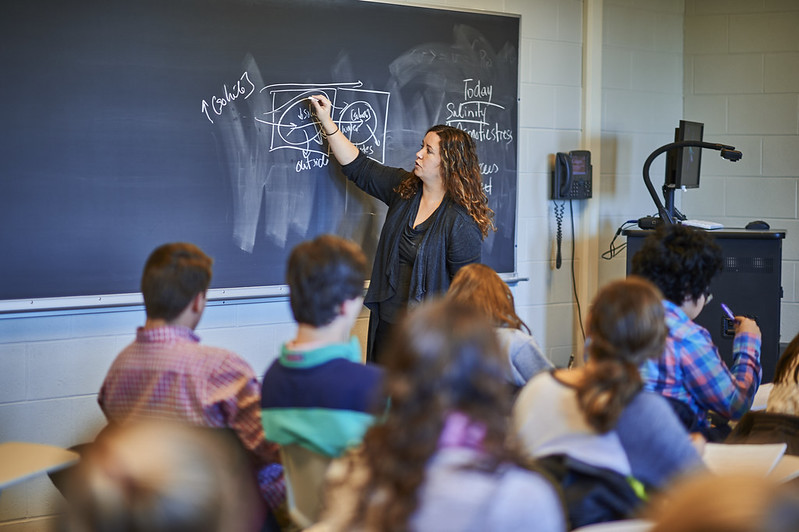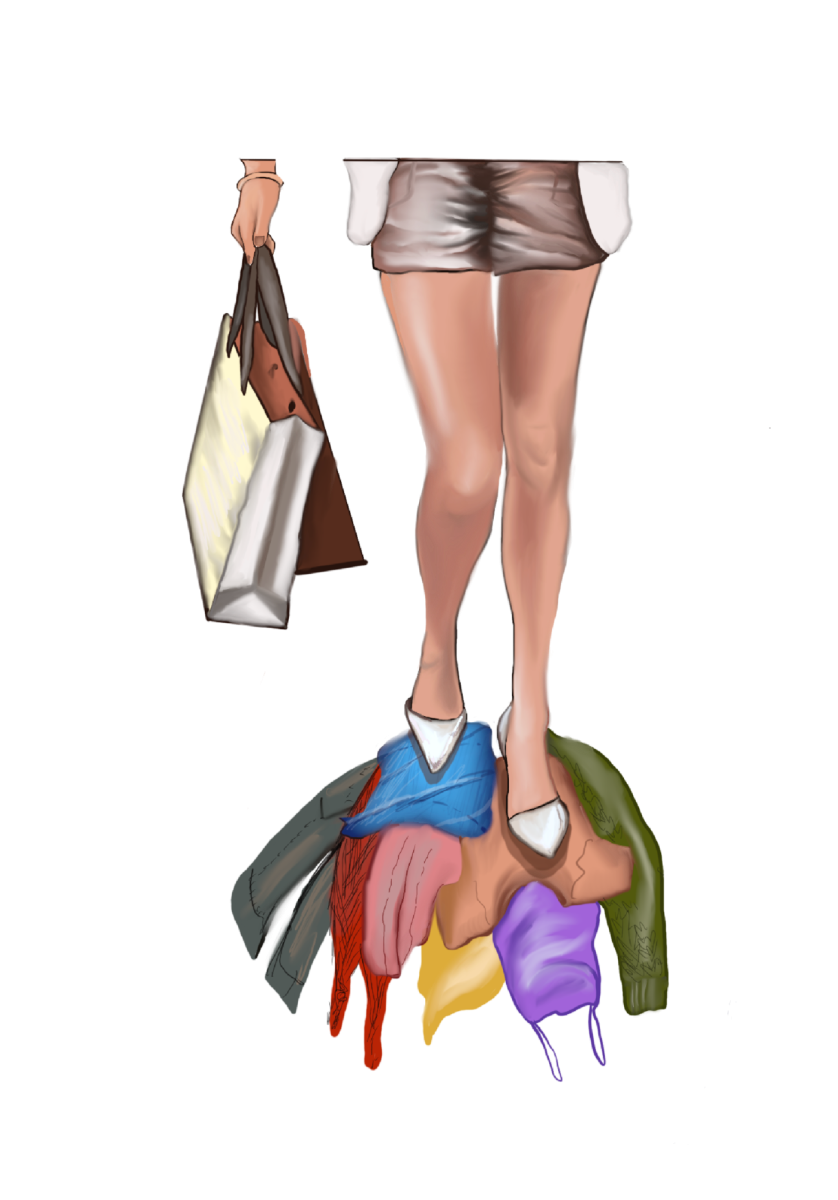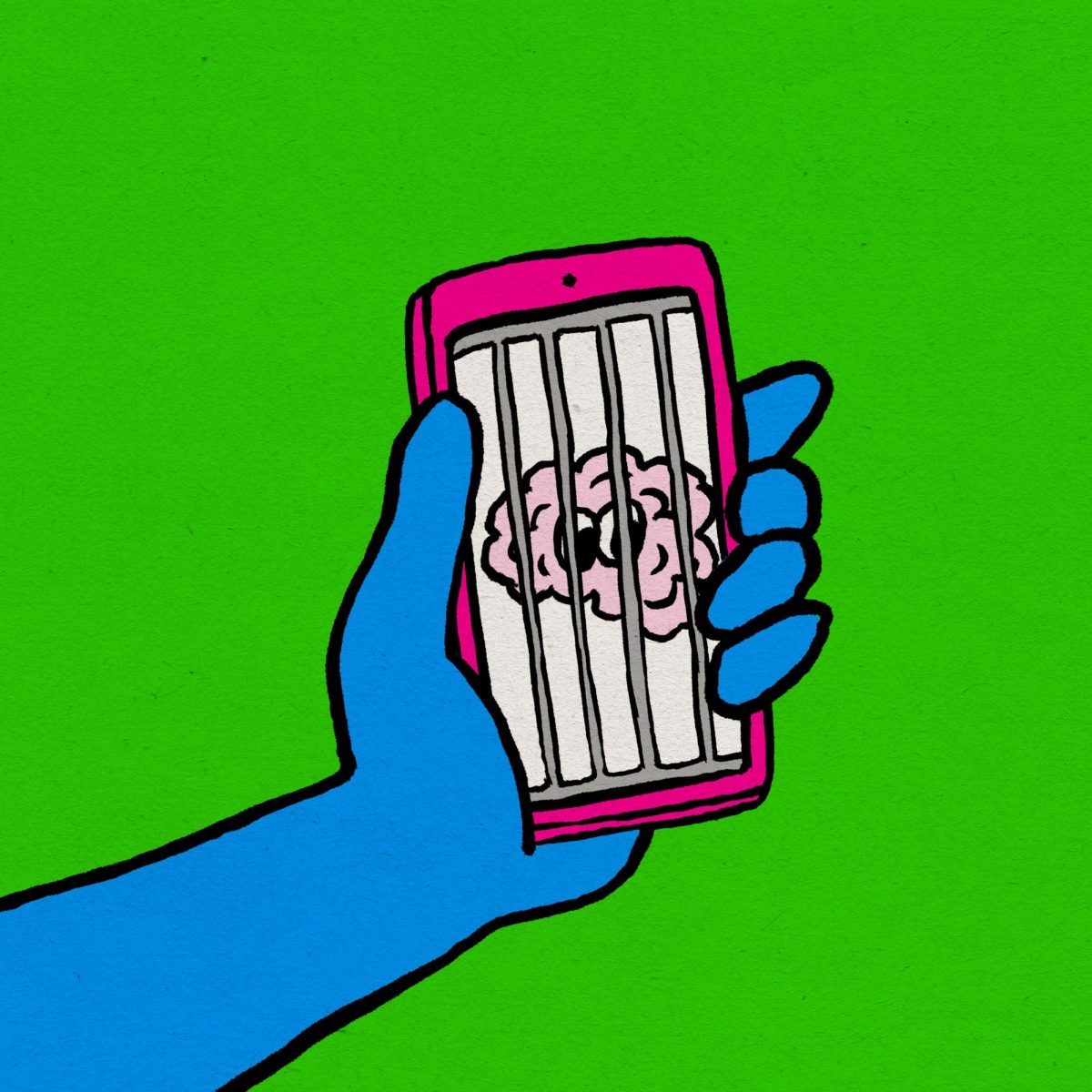It’s practically a rite of passage for Colgate University students to condition themselves to the rugged terrain that covers the majority of campus. The phrase “rugged terrain” is a euphemism in itself, as a more accurate descriptor would be something like “extremely steep hill.” Part of this collective experience is complaining about the daily walks to class, or making the whole ordeal extremely dramatic. I am no different — my worst days are marked by missing the cruiser in the morning, as I blast Kate Bush’s “Running Up that Hill” while sprinting to Lathrop Hall.
In this case, it’s all in good fun, because many of the students complaining are physically able to manage the hills. It feels second nature to vent about these frustrations, especially when perhaps you haven’t been disabled by the campus itself: not having to fill out the housing accommodations form or to call Campus Safety to get a ride uphill, for example. I am not suggesting that these experiences be sensationalized, but rather, seen as commonplace. Those with disabilities, whether invisible or visible, should not have to go to extreme measures for their basic needs to be met, such as getting food from the dining hall or going to class.
In Topical Cream, Korean-American writer Johanna Hedva’s “Sick Woman Theory” discusses their debilitating chronic illness and subsequent trauma of “not being seen.” Hedva describes their modes of protest as being embodied, internalized and lived as they became moments of political protest after years of erasure by various institutions. Shortcomings in accessibility — the lack of infrastructure like ramps or even functioning elevators — can send the message to disabled students that their experiences aren’t the norm. This is an issue at most colleges and universities, but Colgate — not unlike other schools atop hills — seems like the epitome of this political disembodiment. The hilly terrain, in conjunction with the difficult task of maintaining the campus during snowy weather, condenses the population of students who would even consider applying to Colgate by excluding a number of physically disabled students who are unsure whether they would be able to navigate campus.
To learn more about this experience at Colgate, I spoke with first-year Arshia Khadivizand.
You could say that being in a wheelchair is actually the least interesting fact about Khadivizand. I have never felt so intimidated by a first-year, as every student that passed us during our conversation came over to say hello. He is effortlessly easy-going and told me about his necessary and meticulous day-to-day routes without a thought. The one that stuck with me the most is his inability to directly enter Lathrop Hall or McGregory Hall because of the three steps up to each of those buildings. He proceeded to tell me about his journey through several different buildings, during which he somehow ends up going through Little Hall, just to get to either of those places. Then, as if this wasn’t difficult enough, Khadivizand casually told me about his experience during a fire drill.
“I couldn’t take the stairs, obviously, so I took the elevator,” Khadivizand said. “But when I can’t take the elevator during a real fire, what happens?”
Optimistically, he continued to speak positively about his Colgate experience.
“I have obstacles, but I’m not going to let those stop me,” Khadivizand said.
Arshia was born in Iran, and shared that he is grateful for being able to attend Colgate.
“Being here now gives me a lot of privilege,” Khadivizand said. “There’s a lot of kids in Iran who wish they could get the education I’m getting, so I know that there’s a lot of things missing here right now, but I try to look at the good.”
What is missing, you might ask? Khadivizand described it as “the little things.” He chuckled while saying that Colgate is technically accessible.
“Accessibility is not the same thing as reliability,” Khadivizand said.
Take Alumni Hall’s current lack of a functional elevator, for example.
Khadivizand talked about how disability is a construct; how society and institutions actively “disable” certain individuals by classifying their experiences as abnormal, whether by the exclusion of accessible architecture or the hundreds of forms and doctor’s notes that Khadivizand has to fill out to prove that he needs accommodations on campus.
Khadivizand understands the reality of Colgate’s big hill more than anyone else. He even admitted that he chose to come to Colgate because of the small community that could advocate for him. And let me be clear: I am not condemning institutions like Colgate, or Colgate itself, for the capitalist productivity praxis I feel we’ve adopted in our architecture. But I also refuse to accept that disabled individuals like Khadivizand should have to map their own unique geographies to do the things I take for granted, like going to class or the dining hall.
Khadivizand ended our conversation together poetically.
“Equality is not something that is ever reached — it’s progressively chased,” Khadivizand said.
Still, I’ve decided that I’m tired of watching people have to chase things while the rest of us stand stoically just because it doesn’t affect us. I think our answers lie in changing our culture and being aware of the ways we inhabit space. We should all be chasers.
















Sandy Summers • Feb 25, 2024 at 8:15 am
Thank you for advocating for the disabled, Hope. Like any minority group, people experiencing disability need advocates from the majority group to shine a light on their plight, explain the privileges of the majority from a majority perspective, ask them to have compassion for the immediate circumstances of the disabled, and join them in their long-term advocacy issues such as building ramps, fixing elevators, and just plain making sure the disabled are always in the thoughts of those who design and maintain physical spaces. What the world needs more than anything, Hope, is more people willing to speak truth to power and advocate for human rights. Keep on going Hope!
Allan Crounse • Feb 23, 2024 at 12:29 pm
I do not have much to say about this article, but only because I think it already says everything it needs to. This issue is something that a lot of people such as myself do not think of nearly as often, and it needs to change.